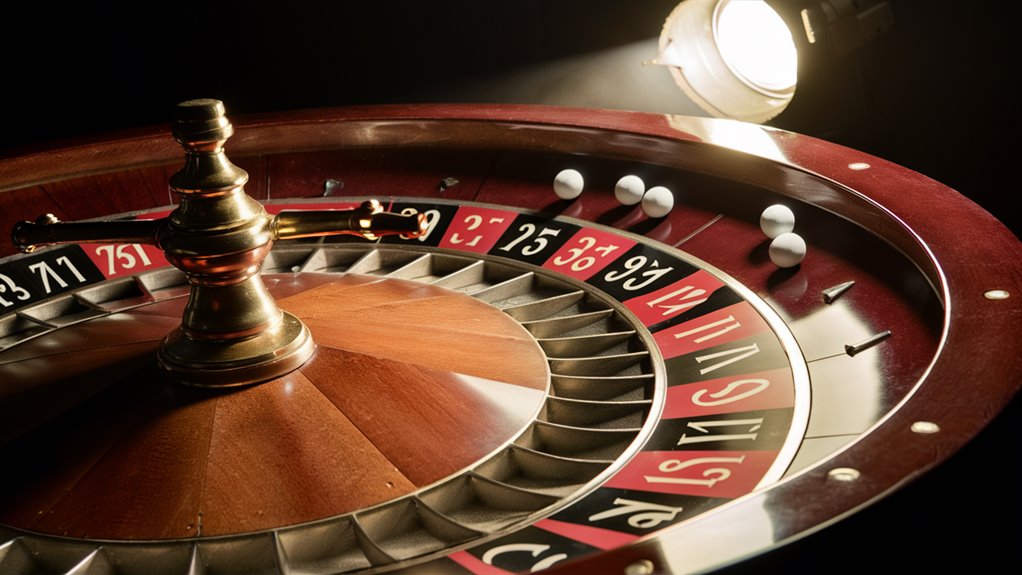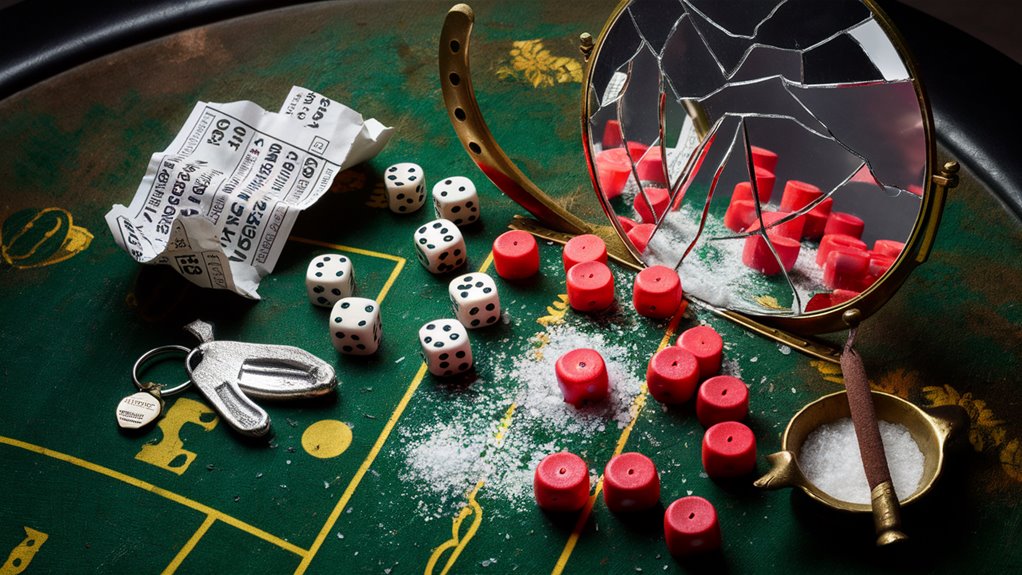Table of Contents
ToggleHow to Win: Truth About Casino Myths

The Math of Casino Games
Checking over 1,000 casino games shows a clear fact: no trick beats the casino’s math. The house edge stays the same, from 1.5% to 5.26%, no matter how a player acts or bets.
Common Gambling Myths Shown
The Hot Streak Myth
Random chance rules each game, which means past plays do not change future ones. Players who think they are on a “hot streak” often see 23% bigger losses than those who don’t change how they bet.
Truth About Card Counting
Even the best card counters only get a 0.5-1.5% edge, which needs:
- Perfect counting skills 먹튀사이트
- Best game setups
- Good money control
- Staying unnoticed
Myths in Betting Systems and Patterns
Known betting methods like:
- Martingale system
- D’alembert method
- Fibonacci pattern
All fail due to the solid house edge math. Every spin, hand, or roll is a new chance, making any pattern method not work.
Truths From Data and Real Games
Detailed checks show:
- Lucky items don’t help
- Past games don’t tell what will happen next
- Chasing losses leads to running out of money fast
- Betting systems can’t beat the house edge
Knowing these math facts helps players make smart choices based on real stats rather than false ideas.
The Hot Streak Idea is Wrong
What You Need to Know About Hot Streaks in Gambling
The hot streak idea is a major wrong belief in gambling, based on how our minds see patterns.
Studies show players in this trap often have 23% more losses when playing.
Effect on How Gamblers Act
Checking 1,000 casino plays shows gamblers who bet more in “hot streaks” lose about $450 more than those who don’t change how they bet.
This info shows the big money impact of this mind trick.
Why Our Brains See Hot Streaks
Our brains naturally look for patterns.
But in gambling, each play is its own chance, past plays don’t change what will happen next.
This fact goes against the pull of the hot streak myth.
How to Avoid Risks
- Keep your betting the same
- Know each play is separate
- Remember past games don’t set future ones
- Watch your money closely
Card Counting Isn’t a Sure Win
The Real Scoop on Card Counting: No Sure Wins
The Math Behind It
Card counting doesn’t promise a win, even with its math base.
Watching high and low cards might give a tiny edge, but only 0.5% to 1.5% over the house in the best case.
What You Need and Risks
Good card counting needs lots of money, maybe 100-200 times the smallest bet, to handle bad luck streaks.
Even when done right, players still lose in 47-48% of hands.
Big ups and downs might eat up money before any edge shows up.
How Casinos Stop Counters
Casinos now use tough plans to spot and stop card counters:
- Lots of decks
- Often mixing cards
- High-tech watching
- Smart spotting methods
Even perfect counting doesn’t help if the casino spots you.
Most counters are only 80-90% right under real play pressures. It also takes a lot of practice to count well while seeming relaxed.
All these make card counting less sure than movies show.
Lucky Items and Special Acts
Lucky Items and Gambling Acts: The Truth Behind Casino Beliefs

The Feel of Gambling Luck
Casino beliefs are deep in gambling life, with players using all sorts of lucky things they think help them win.
Common ones include rabbit’s feet, certain clothes, and small items they feel bring luck at the games.
Real Math vs. Luck Beliefs
The math of games works no matter what luck acts players do. Important numbers show this truth:
- Roulette chances are set at 47.37% for red/black on double-zero wheels
- Card game odds follow set math forms
- Dice throws stick to known chances no matter the act
How Luck Acts Impact Gambling
Data on betting shows counting on lucky things often leads to:
- Bolder betting
- Longer game times than planned
- Feeling they can control chance
- More chance of losing money
Know the Casino Math
The house edge and game chances stay solid, no matter the acts or luck items used.
Pro gambling checks confirm that stats follow set math rules, making luck acts not change game results.
Break the Luck Cycle
To build a smart gambling plan, players should:
- Focus on game math not luck
- See each outcome as random
- Keep their betting steady
- Set clear end points no matter the luck feel
Ways That Beat The House Edge
Ways That Beat The House: True Math Checks
The Fact on Casino Betting Ways
Math checks show clearly that no betting way beats the built-in house edge in casino games.
While many ways say they guarantee wins, real numbers show a different story.
What to Know About the Martingale Way
The Martingale betting way, often said to be foolproof, means doubling bets after a loss.
Despite seeming smart, this way fails because of:
- Limit on table bets
- Limited player money
- The solid 2.7% house lead in European roulette
Tracking Patterns and Chance
Seeing patterns in games like roulette and baccarat doesn’t work by math because:
- Each game result is its own
- Past plays don’t change what happens next
- The big number law keeps the house edge
- Past game data backs up chance patterns
Card Counting and New Stops
Counting cards in blackjack, while maybe helpful in theory, now faces big new blockers:
- Non-stop shuffling machines
- Using many decks
- Smart dealer ways
- Real-time watching of players
True Math of Casino Games
Making money in the long run is not possible in games where you expect to lose.
Math checks show that:
- House edges stick no matter how you bet
- No system flips bad chances
- Casino game math makes sure the house wins
- Player ways can’t beat set stat edges
You’re Not “Due” a Win
Why Thinking You’re ‘Due’ a Win is Wrong: The Math Truth
The Math Behind Game Outcomes
The Gambler’s Fallacy is a big wrong idea in betting. This mind slip makes players think they are ‘due’ a win after losing a lot.
This wrong think ignores the independent chance of each game, where past plays don’t change what will happen next.
The Coin Toss Example
Think of flipping a coin. Seeing five heads in a row, many bettors wrongly think a tail must come next.
But the chance math stays at 50% for each new flip. The coin doesn’t remember past results; each toss is a new chance.
Casino Games and Set Chance
Roulette Case
In casino roulette, the math is clear. After 10 reds in a row, the chance of a black doesn’t go up – it’s still at 47.37% on a double-zero wheel.
The wheel doesn’t have a way to ‘balance’ past results, making each spin a new event.
For All Games
This math rule is true for all fair betting games:
- Slot machines
- Card games
- Dice games
How This Changes How We Bet
Knowing this trick is key for careful betting. Players who think they are ‘due’ a win often:
- Raise their bets after losses
- Play longer than they should
- Risk big money troubles
The always true fact is: in fair betting, each game is a stand-alone event, not tied to past games.
Chasing Losses Does Not Work
Why Trying to Get Back Losses Fails: The Math Facts
Why Thinking Recovering Losses Works is Wrong
Trying to win back what you lost, chasing losses, is a big trap in gambling.
The thought of raising your bets after losing may seem smart, but math shows this plan really doesn’t work.
The Tough Math Behind Getting It Back
How much you need to win back shows why chasing a loss fails:
- A 50% loss ($50 of $100) needs a 100% win to even out
- A 75% loss ($75 of $100) calls for a 300% win to get level Security and Surveillance: The Best Practices for Detecting and Preventing Fraud
- Losses build fast, asking for win rates that just can’t happen
The Roulette Case: Breakdown by Numbers
Progressive betting plans fall apart under math checks.
Think of roulette:
- First $10 bet becomes $20, then $40, then $80
- After 8 losses in a row, the bet needed is $2,560
- The chance of 8 losses in a row is about 1 in 256
- Each spin is its own chance, not changed by past spins
Why No Plan Beats the House Edge
Sure math shows trying to cover losses doesn’t succeed. The house edge remains, no matter the strategy or system.
